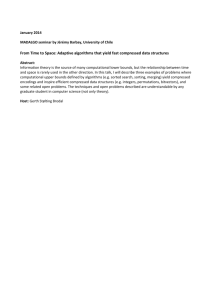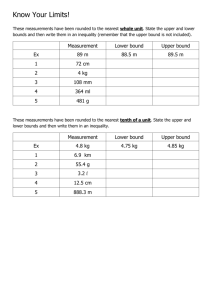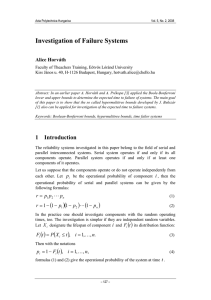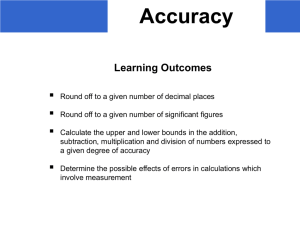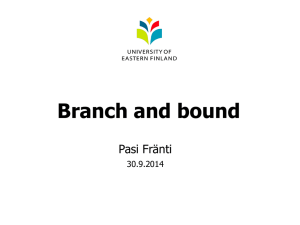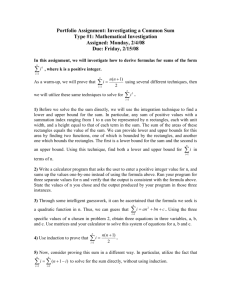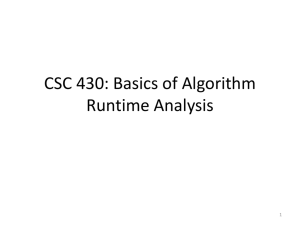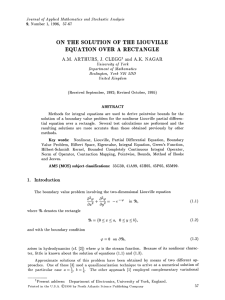Proposal for Master Thesis
advertisement
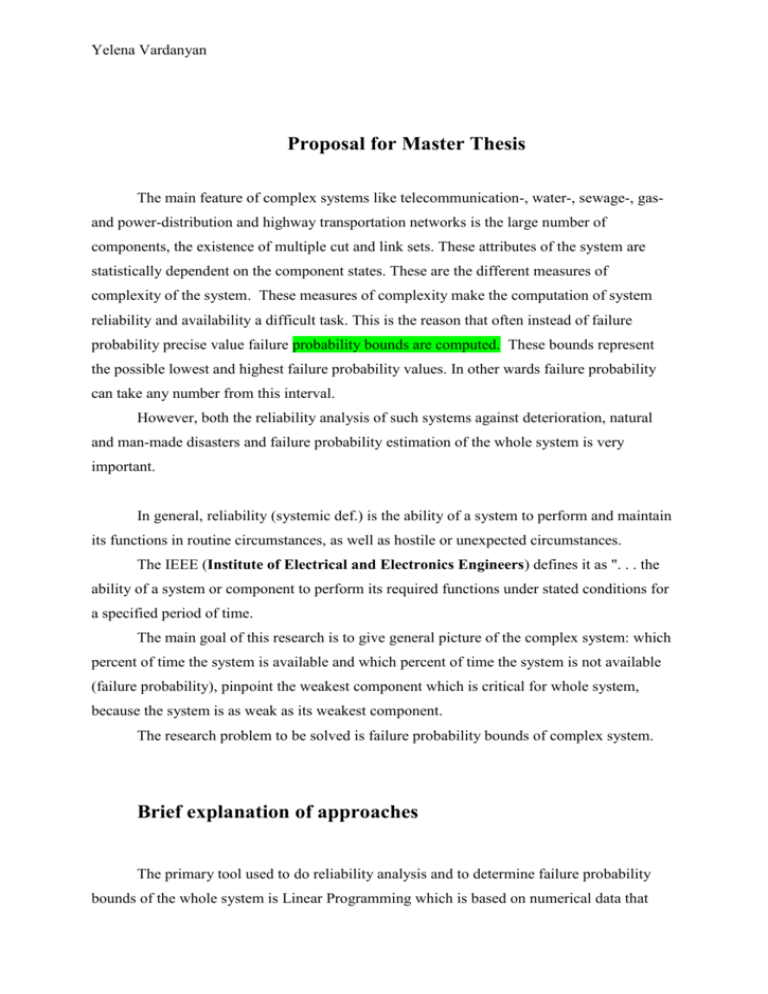
Yelena Vardanyan Proposal for Master Thesis The main feature of complex systems like telecommunication-, water-, sewage-, gasand power-distribution and highway transportation networks is the large number of components, the existence of multiple cut and link sets. These attributes of the system are statistically dependent on the component states. These are the different measures of complexity of the system. These measures of complexity make the computation of system reliability and availability a difficult task. This is the reason that often instead of failure probability precise value failure probability bounds are computed. These bounds represent the possible lowest and highest failure probability values. In other wards failure probability can take any number from this interval. However, both the reliability analysis of such systems against deterioration, natural and man-made disasters and failure probability estimation of the whole system is very important. In general, reliability (systemic def.) is the ability of a system to perform and maintain its functions in routine circumstances, as well as hostile or unexpected circumstances. The IEEE (Institute of Electrical and Electronics Engineers) defines it as ". . . the ability of a system or component to perform its required functions under stated conditions for a specified period of time. The main goal of this research is to give general picture of the complex system: which percent of time the system is available and which percent of time the system is not available (failure probability), pinpoint the weakest component which is critical for whole system, because the system is as weak as its weakest component. The research problem to be solved is failure probability bounds of complex system. Brief explanation of approaches The primary tool used to do reliability analysis and to determine failure probability bounds of the whole system is Linear Programming which is based on numerical data that Yelena Vardanyan represent rough approximations of quantities that are essentially difficult to estimate. Because of this, it becomes very important to include a post optimality exploration of how an allowable change in the data changes the solution. The sensitivity analysis on LP solution allows the investigator recognizing the critical component in a whole system. LP is a powerful tool to handle such a problem but it is very difficult to solve manually having increasing number of variables. Several computer packages such as LINGO, LINDO, and EXCEL are available to solve LP formulation. Most commercial packages, including above mentioned ones, provide with the results of such an analysis for solving LP problems as a part of the standard output report. Based on this technique, data collected from different sources and taking into consideration the uniqueness of each field we can make a research and provide our recommendations. Usually analysis described above needs the reliability of each component to be established relative to a specified criterion. I will submit my literature review at the beginning of May, than will start existing data analyses. It is difficult to mention the exact finish date because it depends on all probable problems which I might face during my research. May Data collection Data analysis LP formulation Sensitivity analysis Summary and Conclusion June July August September Yelena Vardanyan


